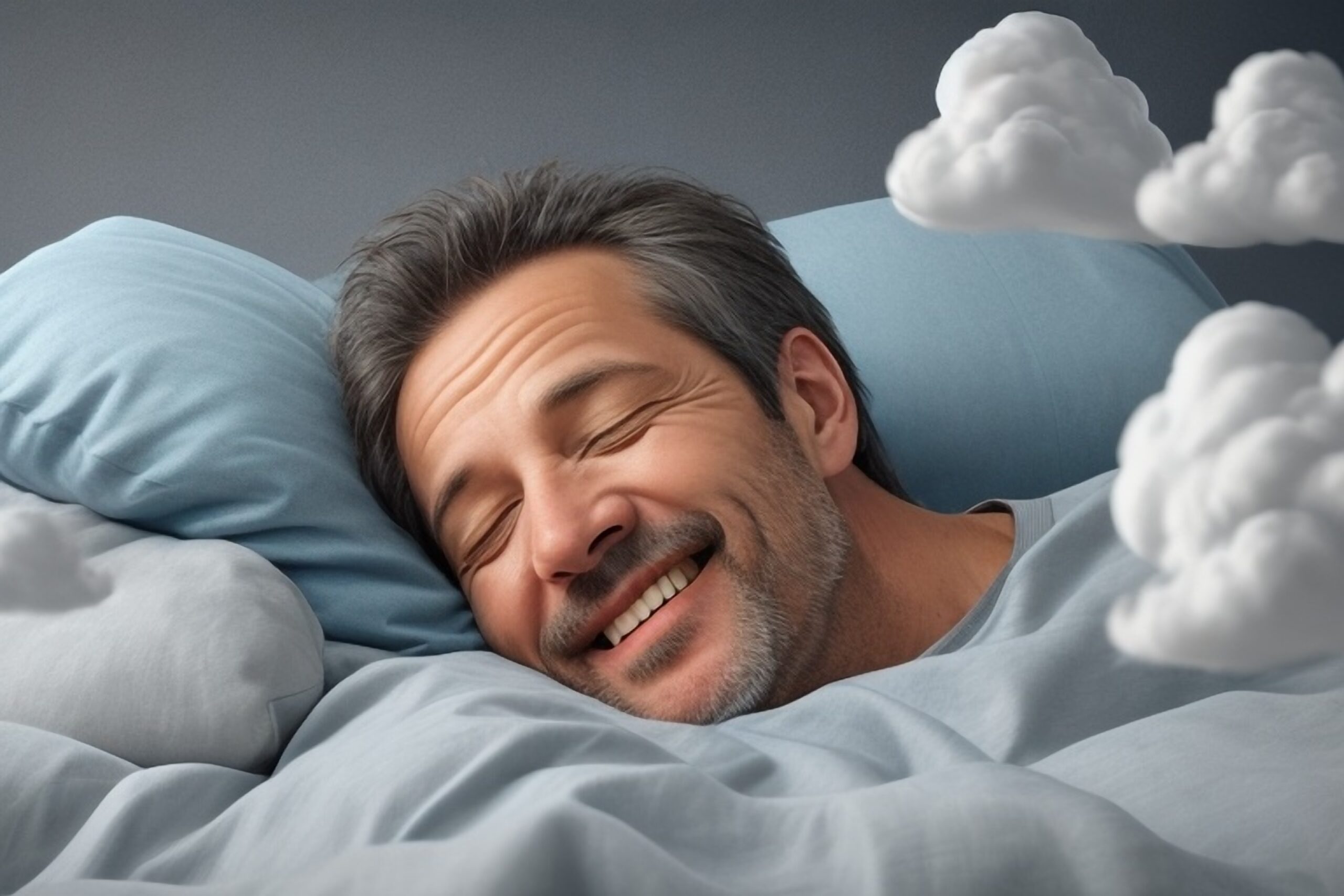Unleash the power of sleep and unlock your true potential – experience the transformative effects of our sleep-enhancing product.
Introduction
Do you ever feel like you’re constantly playing catch-up on sleep? You toss and turn all night, only to wake up feeling tired and unfocused. If this sounds familiar, you’re not alone. Millions of people around the world struggle with sleep problems.
But here’s the good news: getting a good night’s sleep doesn’t have to be a mystery. By adopting healthy sleep hygiene practices, you can create an environment that promotes restful sleep and allows you to wake up feeling refreshed and ready to tackle the day. This article is your guide to unlocking the secrets of sleep hygiene and reclaiming your nights.
What is Sleep Hygiene?
Think of sleep hygiene as a set of practices and habits that promote healthy sleep patterns. Just like good oral hygiene keeps your teeth healthy, good sleep hygiene keeps your sleep cycle on track. By establishing a consistent sleep schedule, creating a relaxing bedtime routine, and optimizing your sleep environment, you can significantly improve the quality of your sleep.
Why is Sleep Hygiene Important?
Getting enough quality sleep is crucial for your overall health and well-being. Sleep is essential for physical and mental repair, cognitive function, mood regulation, and immune system health. Chronic sleep deprivation can lead to a variety of health problems, including:
- Increased risk of chronic diseases: Studies have linked insufficient sleep to an increased risk of heart disease, stroke, diabetes, and even certain types of cancer.
- Weight gain: Sleep deprivation can disrupt hormones that regulate appetite, leading to increased cravings and weight gain.
- Mood problems: Not getting enough sleep can make you more prone to anxiety, depression, and irritability.
- Decreased cognitive function: Sleep deprivation can impair your memory, focus, and concentration.
- Weakened immune system: Sleep is vital for your body to fight off infections and illnesses.
By prioritizing healthy sleep hygiene, you’re investing in your overall health and well-being.Now that you understand the importance of sleep hygiene, let’s delve into some actionable strategies you can incorporate into your daily routine:
Creating a Consistent Sleep Schedule:
- Go to bed and wake up at the same time each day, even on weekends. This helps regulate your body’s natural sleep-wake cycle, known as your circadian rhythm.
- Aim for 7-8 hours of sleep per night. While individual sleep needs can vary slightly, most adults require this range for optimal health.
- Develop a relaxing bedtime routine. Wind down for 30-60 minutes before bed with calming activities like reading a book, taking a warm bath, or practicing light stretches. Avoid stimulating activities like watching TV, using electronic devices, or working on demanding tasks.
Optimizing Your Sleep Environment:
- Create a cool, dark, and quiet bedroom. Invest in blackout curtains, earplugs, and a comfortable mattress and pillows.
- Reserve your bedroom for sleep and intimacy. Avoid working, watching TV, or eating in bed as these activities can disrupt sleep associations.
- Make sure your bedroom is clutter-free and promotes relaxation.
Say goodbye to sleepless nights, restless mornings, and stubborn belly fat – embrace the power of restful sleep and transform your life.
Lifestyle Habits for Better Sleep:
- Get regular exercise. Aim for at least 30 minutes of moderate-intensity exercise most days of the week. However, avoid vigorous exercise close to bedtime as it can be stimulating.
- Manage stress. Chronic stress can significantly disrupt sleep. Practice relaxation techniques like deep breathing, meditation, or yoga to manage stress and promote better sleep.
- Limit caffeine and alcohol intake. While caffeine can provide a temporary energy boost, it can interfere with sleep later in the day. Avoid caffeine in the afternoon and evening. Similarly, while alcohol may make you feel drowsy initially, it disrupts sleep quality throughout the night.
- Create a healthy sleep diet. Avoid heavy meals and sugary drinks close to bedtime. Opt for a light, healthy snack if you’re hungry before bed.
- See sunlight during the day. Getting regular exposure to natural sunlight helps regulate your circadian rhythm and promotes better sleep at night.
Additional Tips:
- If you can’t fall asleep after 20 minutes, get out of bed and do a relaxing activity until you feel tired. Lying in bed awake can create negative associations with sleep.
- Avoid napping during the day, especially long naps in the afternoon. This can make it harder to fall asleep at night.
- If you have trouble sticking to a sleep schedule or suspect you have an underlying sleep disorder, consult your doctor. They can assess your sleep habits and recommend further treatment options.
Conclusion:
By prioritizing healthy sleep hygiene practices and implementing the tips outlined above, you can create a sleep sanctuary that promotes restful nights and improves your overall health and well-being. Remember, a good night’s sleep is an investment in your physical and mental well-being. So, take charge of your sleep hygiene and wake up feeling refreshed and ready to take on the day!
Share this article with friends and family who may be struggling with sleep problems.
Disclaimer :This article is for informational purposes only and does not constitute medical advice. Please consult with a qualified healthcare professional before making any changes to your diet, exercise routine, or taking any supplements or medications. Self-treating can be dangerous, and therefore, consulting a healthcare professional is always the best course of action when addressing any health concerns or considering changes to your well-being.
Sources:
- National Sleep Foundation: https://www.sleepfoundation.org/
- Mayo Clinic: https://www.mayoclinic.org/healthy-lifestyle/adult-health/expert-answers/how-many-hours-of-sleep-are-enough/faq-20057898
- Centers for Disease Control and Prevention: https://www.cdc.gov/sleep/index.html
Sleep Hygiene, Sleep Health, Restful Sleep, Sleep Quality, Sleep Practices, Sleep Problems, Overall Health, Wellness #SleepHygiene, #SleepHealth, #SleepTips, #RestfulSleep, #BetterSleep, #Wellness, #Health, #SleepScience


